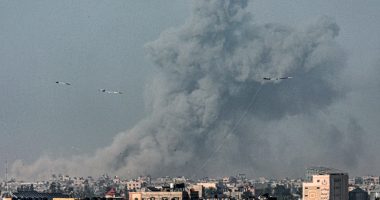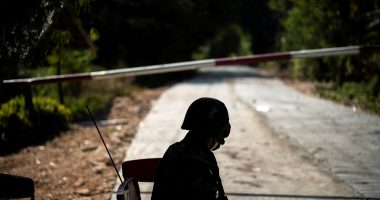
France has said it will impose a state of emergency in New Caledonia for at least 12 days, after a second night of unrest over changes to voting rights in the overseas territory that has resulted in the deaths of at least four people.
More than 130 people have been arrested and more than 300 injured, according to the french high commission.
A government spokeswoman, Prisca Thevenot, announced the decision after a cabinet meeting on Wednesday afternoon in Paris, saying it would aim to calm tensions after the “scenes of chaos.”
Under the emergency measures, authorities will have greater powers to tackle the unrest, including the possibility of house detention for people deemed a threat to public order.
The last time France took such a measure for the Pacific archipelago was in January 1985, during a peak of recurring violent conflicts between French authorities and a pro-independence movement that spanned most of the 1980s.
Later on Wednesday, France’s prime minister, Gabriel Attal, told a ministerial meeting that troops had been deployed to secure ports and the international airport, while the government representative in New Caledonia had “banned TikTok”. The interior ministry said 500 additional officers were expected within hours on the archipelago to bolster 1,800 police and gendarmes already there.
Rioting began this week before politicians in Paris – 10,600 miles (17,000 km) away – voted on a bill to allow French residents who have lived in New Caledonia for 10 years the right to vote in provincial elections. Some local leaders fear this change would dilute the share of the vote held by Kanaks, the Indigenous group that makes up about 41% of the population and the major force in the pro-independence movement.
Three of the people who died on Wednesday were young Indigenous Kanaks, said a spokesperson for New Caledonia’s president, Louis Mapou. The fourth fatality was a gendarme.
All political parties in the territory issued a joint statement calling for “calm and reason” as a curfew was extended to Thursday, with schools and the airport remaining closed.
In the capital, Nouméa, and in the commune of Païta there were reports of several exchanges of fire between civil defence groups and rioters.
French officials said one person had been found shot dead in an industrial zone. The high commissioner, Louis Le Franc, said the shot had not come from police but “from someone who probably was defending himself”.
“Numerous arsons and pillaging of shops, infrastructure and public buildings – including primary and secondary schools – were carried out,” said the high commission.
Security forces regained control of Nouméa’s prison, which holds about 50 inmates, after an uprising and escape attempt by prisoners.
Le Franc warned that if calm were not restored there would be “many deaths” in the Nouméa metropolitan area.
“The situation is … very serious,” he said. “We have entered a dangerous spiral, a deadly spiral.” Le Monde reported thatLe Franc had described the situation as “insurrectional”, saying it could take on “a form of civil war”.
Speaking to broadcaster France Info on Wednesday, Anne Clément, a resident of the capital, Noumea, said the unrest has morphed into “a real urban guerrilla war.”
People have been confined to their homes for two days, terrified by “shooting from all sides,” Clément, a nursery director, told the French broadcaster. “We’ve stopped eating, we’ve stopped living, we’ve stopped sleeping,” she added.
“I don’t see how we could get out of the situation without the state of emergency,” she said.
As well as a curfew, gatherings have been banned, along with the carrying of weapons and the sale of alcohol. The La Tontouta international airport remained closed to commercial flights.
The voting amendment is the latest flashpoint in a decades-long tussle over France’s role in the island.
after newsletter promotion
On Tuesday, France’s lower house of parliament voted by 351 votes to 153 in favour of the constitutional change to voting rights.
French president Emmanuel Macron has said he would delay the process of rubber-stamping the amendment into law and invite representatives of the territory’s population to Paris for talks to reach a negotiated settlement. However, he said a new agreement must be reached by June or he would sign it into law.
On Wednesday, a New Caledonia pro-independence leader, Daniel Goa, asked people to “go home”, and condemned the looting. But he added: “The unrest of the last 24 hours reveals the determination of our young people to no longer let France take control of them.”
The main figure of the anti-independence camp, the former minister Sonia Backès, told RMC radio that she felt the situation was one of “civil war” and called for the army to intervene.
Macron has been seeking to reassert his country’s importance in the Pacific region, where China and the US are vying for influence but France has a strategic footprint through territories that include New Caledonia and French Polynesia.
Lying between Australia and Fiji, New Caledonia is one of several French territories spanning the globe from the Caribbean and Indian Ocean to the Pacific that remain part of France in the post-colonial era.
In the Nouméa accord of 1998, France vowed to gradually cede more political power to the Pacific island territory of nearly 300,000 people.
Under the agreement, New Caledonia has held three referendums over its ties with France, all rejecting independence. But independence retains support, particularly among the Kanaks.
The Nouméa accord has also meant that New Caledonia’s voter lists have not been updated since 1998 – meaning that island residents who have arrived from mainland France or elsewhere in the past 25 years do not have the right to take part in provincial polls.
The French government has branded the exclusion of one out of five people from voting as “absurd”, while separatists fear that expanding voter lists would benefit pro-France politicians and reduce the weight of the Kanaks.
Read More: World News | Entertainment News | Celeb News
Guardian






